(Im)materialities of Violence (25-27 November 2021)
A series of digital research events
The conference took place in November 2021. For a recap, check out the UrbTerr Twitter page here
A Somatechnics call for papers on the basis of the conference, titled “The Somatechnics of Violence: Affective, (Im)material and Digital Transformations”, has recently been announced. You can download and read the call for papers here.
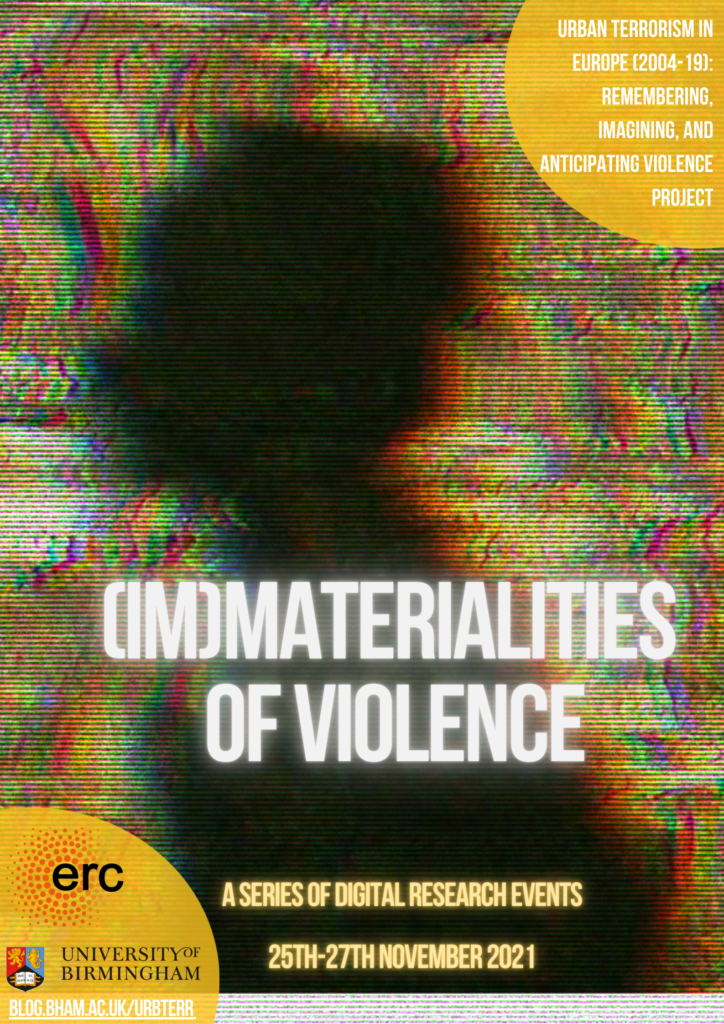
(Im)materialities of Violence (25-27 November 2021, University of Birmingham, UK) is an interdisciplinary series of digital research events dedicated to addressing contemporary violence in its haunting (im)material manifestations, and that specifically through the entangled foci on the bio-/necropolitical framework and outcomes of terrorism, counterterrorist law, and securitization processes.
This particular research events series has been organised by Dr. Katharina Karcher and Dr. Evelien Geerts, and is part of the Urban Terrorism in Europe (2004-19): Remembering, Imagining, and Anticipating Violence ERC-project (University of Birmingham).
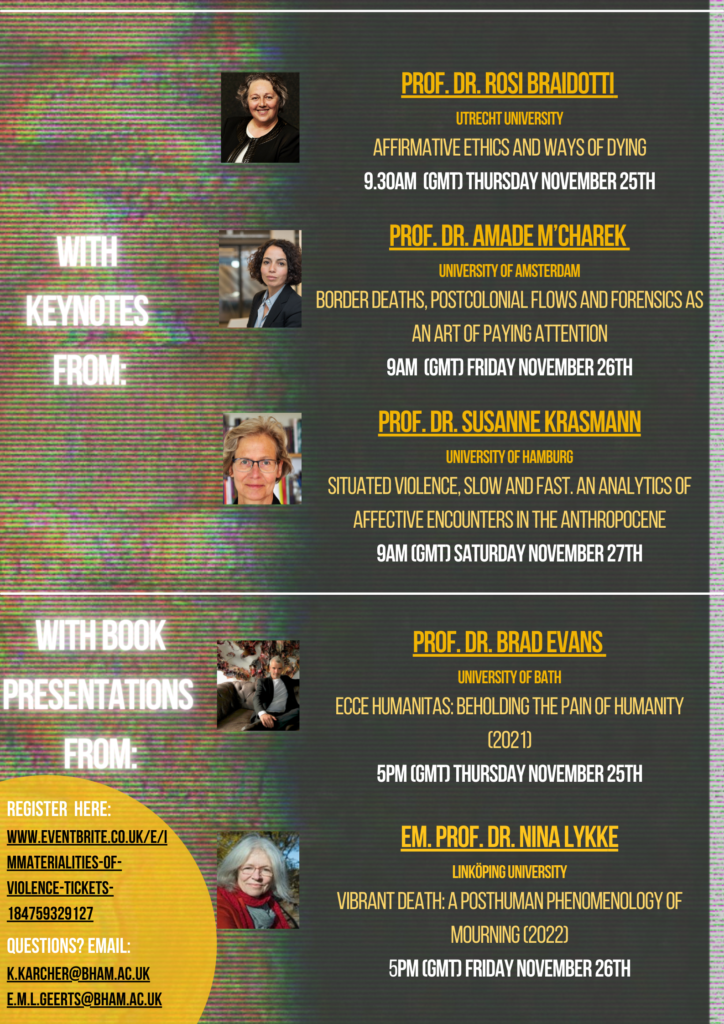 The UrbTerr project documents and analyzes a range of voices in contemporary debates on urban terrorism in Europe via concepts and methods from memory studies, cultural studies, feminist theory, and anthropology while problematizing the narrow concept of imagination and creativity underpinning recent counter-terrorism measures and a great part of the academic literature on this subject.
The UrbTerr project documents and analyzes a range of voices in contemporary debates on urban terrorism in Europe via concepts and methods from memory studies, cultural studies, feminist theory, and anthropology while problematizing the narrow concept of imagination and creativity underpinning recent counter-terrorism measures and a great part of the academic literature on this subject.
(Im)materialities of Violence investigates how (terrorist) violence does something to embodied subjects and the environments they inhabit. At the same time, it frequently provokes acts, processes, and praxes of radical undoing, dispossession, and disposability and complete erasure that tend to go hand in hand with politically exploited dehumanizing discourses. This double-layeredness of violence – its doing and undoing – is mirrored by the fact that violence involves both human and more-than-human actors, and moreover engenders material and immaterial effects.
By means of intimate research panels, keynotes by Prof. Dr. Rosi Braidotti (Utrecht University), Prof. Dr. Amade M’charek (University of Amsterdam), and Prof. Dr. Susanne Krasmann (University of Hamburg), and book presentations by Prof. Dr. Brad Evans (University of Bath) and Em. Prof. Dr. Nina Lykke (Linköping University), (Im)materialities of Violence wants to do justice to the abovementioned triple complexity, that is – violence’s (un)doing, (more-than-)humanness, and (im)materiality. It does so by spotlighting contributions from disciplines as diverse as philosophy, feminist theory, memory studies, cultural studies, history, and anthropology, while making space for new materialist, posthumanist, and affect theoretical approaches and conceptual frameworks.
You can find the registration link for the keynotes and book presentations (which are all open to the public and will include live Q&A sessions) here. The full program below includes all keynotes and book presentations, plus four panels (which will only be accessible to the panelists).
Program details:
*Note: All events will take place digitally and according to Greenwich Mean Time (GMT)
THURSDAY 25/11:
- 9AM (GMT) – 11AM: Conference welcome & Keynote 1 and Q&A: Prof. Dr. Rosi Braidotti (Utrecht University) – Affirmative Ethics and Ways of Dying
The posthuman convergence, defined as the simultaneous occurrence of cognitive capitalism (aka Fourth Industrial Revolution) and the climate change (aka Sixth Extinction), encourages a critical reappraisal of what counts as human, living matter and Life itself. That includes a serious reconsideration of modes and times of dying. Cognitive capitalism is an extraction and extinction economy, that draws capital from the informational codes of all living entities, human and non-human, thus erasing qualitative distinctions between species by subjecting them all to the logic of profit.
This opportunistic form of post-anthropocentrism involves not only to the zoe/bio/geo/techno- management of Life, but also new ways of dying and of letting die. These include environmental devastation, unequal distribution of wealth and access to the new technologies, the persistence of technologically mediated wars and surveillance strategies which, together with the rise of racism, xenophobia and illiberal governance, are defining features of these times. What kind of ethical accountability can we develop on the ruins of anthropocentrism and human exceptionalism? What can a neo-materialist affirmative ethics offer to posthuman subjects, in order to deal with the conflicting demands currently made on them?
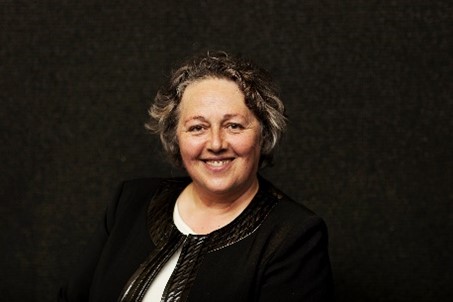
Prof. Dr. Rosi Braidotti is a contemporary Continental philosopher and feminist theorist. She is Distinguished University Professor at Utrecht University, where she has taught since 1988. She has been awarded honorary degrees from Helsinki (2007) and Linköping (2013), is a Fellow of the Australian Academy of the Humanities (FAHA, 2009), and a Member of the Academia Europaea (MAE, 2014). Her main publications include Nomadic Subjects (2011), Nomadic Theory (2011), both with Columbia University Press; The Posthuman (2013) and Posthuman Knowledge (2019) with Polity Press. She co-edited Conflicting Humanities with Paul Gilroy (2016), and The Posthuman Glossary with Maria Hlavajova (2018), both with Bloomsbury Academic.
- 11 AM: Break
- 11.30AM-1PM: Panel 1: The (im)materiality of violence: New materialist, posthumanist and affect theoretical conceptualizations & methodologies
- Jayne Osgood (Middlesex University) & Sid Mohandas (Middlesex University)– “PREVENT-ing decolonisation in the early years?: Attending to pastpresent material-discursive-affective entanglements of violence in the nursery”
- Idil Cambazoglu (UCL), Jessica Ringrose (UCL), Bárbara Berger-Correa (UCL) & Xumeng Xie (UCL)– “Emoji-ing Hate-Parodying Feminist Academia: Gender Trolling and Networked Misogyny Banter Vernaculars on Twitter”
- Kate Marston (Cardiff University) & EJ Renold (Cardiff University)– “Making gender and sexual violence matter with young people: Tales from a posthuman arts-based praxis”
- Dorothee Hölscher (Griffith University) & Sharlene Nipperess (RMIT)– “Reconsidering social work’s relationship with human rights in the context of a necropolitical ordering of the world: The case of mass-displacement and refugee encampment”
- 1PM: Lunch Break
- 5PM-6.30PM: Book presentation 1 and Q&A: Prof. Dr. Brad Evans (University of Bath) – Ecce Humanitas: Beholding the Pain of Humanity
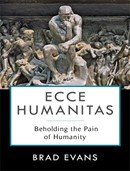 The very idea of humanity seems to be in crisis. Born in the ashes of devastation after the slaughter of millions, the liberal conception of humanity imagined a suffering victim in need of salvation. Today, this figure appears less and less capable of galvanizing the political imagination. But without it, how are we to respond to the inhumane violence that overwhelms our political and philosophical registers? How can we make sense of the violence that was carried out in the name of humanism? And how can we develop more ethical relations without becoming parasitic on the pain of others?
The very idea of humanity seems to be in crisis. Born in the ashes of devastation after the slaughter of millions, the liberal conception of humanity imagined a suffering victim in need of salvation. Today, this figure appears less and less capable of galvanizing the political imagination. But without it, how are we to respond to the inhumane violence that overwhelms our political and philosophical registers? How can we make sense of the violence that was carried out in the name of humanism? And how can we develop more ethical relations without becoming parasitic on the pain of others?
Through a critical exploration of violence and the sacred, Ecce Humanitas recasts the fall of liberal humanism. Brad Evans offers a rich analysis of the changing nature of sacrificial violence, from its theological origins to the exhaustion of the victim in the contemporary world. He critiques the aestheticization that turns victims into sacred objects, sacrificial figures that demand response, perpetuating a cycle of violence that is seen as natural and inevitable. In novel readings of classic and contemporary works, Evans traces the sacralization of violence as well as art’s potential to incite resistance. Countering the continued annihilation of life, Ecce Humanitas calls for liberating the political imagination from the scene of sacrifice. A new aesthetics provides a form of transgressive witnessing that challenges the ubiquity of violence and allows us to go beyond humanism to imagine a truly liberated humanity.
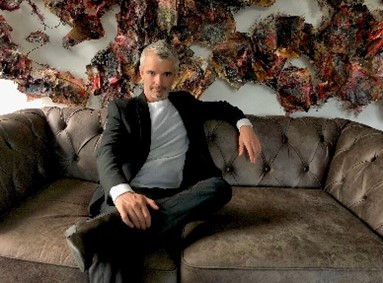
Prof. Dr. Brad Evans is Professor of political violence and aesthetics at the University of Bath. His many books include Atrocity Exhibition: Life in the Age of Total Violence (2019) and Disposable Futures: The Seduction of Violence in the Age of Spectacle (2015). He led a dedicated series on violence for The Stone, a forum for contemporary philosophers from the New York Times, and is the lead editor for the “Histories of Violence” section of the Los Angeles Review of Books.
FRIDAY 26/11:
- 9AM-10.30AM (GMT): Keynote 2 and Q&A: Prof. Dr. Amade M’charek (University of Amsterdam) – Border Deaths, Postcolonial Flows and Forensics as an Art of Paying Attention
In this talk, I want to narrate several stories that can help us grasp that magnitude of death and dying in the Mediterranean Sea. An attempt to narrate the crisis away, and to attend to the chronicity of Europe’s ongoing (post)colonial involvement on the African continent. In these stories of encounter on the beaches of Zarzis, a town in the south of Tunisia, my entry point is (traces) of bodies that wash ashore. Traces, such as, worn-out sneakers and slippers, or clothing and toys. However, since the place matters, these traces will take us in different directions as well.
Through a loose connection between a diversity of material traces, I suggest a shift and broadening of the notion of forensics. From a practice of delivering evidence about a single event, to an art of paying attention. The latter is a move towards materiality and material traces that could help us to re-configure the realities of death and dying and articulate the ambivalences and politics of persistent colonial relations. Attending to death and dying beyond Europe’s border management regime, I argue that what we are facing is not simply a humanitarian problem but a political problem, one that implicates us in intricate ways.
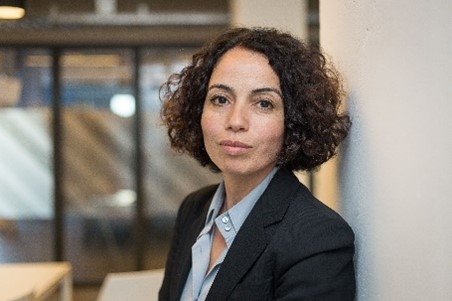
Prof. Dr. Amade M’charek is Professor of Anthropology of Science at the Department of Anthropology, University of Amsterdam, where she acts as the director of the research group Health, Care and the Body. M’charek is PI of the RaceFaceID project, an ERC-consolidator project on forensic identification and the making of face and race, and co-PI of the NWA project Pressing Matter: Ownership, Value and the Question of Colonial Heritage in Museums. Her work has centred on the ir/relevance of race in science and society and the material semiotics of identities. Through her recent research on migrant death, she has developed an interest in forensic methods for studying (post)colonial relations, circulations and extractions.
- 10.30AM: Break
- 11.30AM-1PM: Panel 2: The (im)materiality of violence: Urban cities & environments
- Dorota Golańska (University Of Łódź)– “Slow violence, slow urbicide: Accounting for the more-than-human dimension of urban warfare”
- Carol A. Taylor (University of Bath) & Nikki Fairchild (University of Portsmouth)– “Mind the gap. Woman walking alone. Fear as Affective Assemblage”
- Maja Babić (Charles University, Prague)– “‘Where did you go, Josif?’—An Analysis of Soviet Urban Heritage in (European) Prague”
- Andrea Pavoni (Dinâmia’CET-IUL) & Simone Tulumello (Instituto de Ciências Sociais da Universidade de Lisboa)– “The infrastructure of (urban) violence: Steps toward an articulation of the political economy and materiality of a problematic concept”
- 1PM: Lunch break
- 5PM-6.30PM: Book presentation 2 and Q&A: Em. Prof. Dr. Nina Lykke (Linköping University) –Vibrant Death: A Posthuman Phenomenology of Mourning
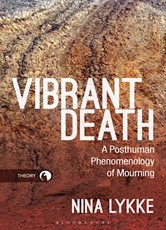 Vibrant Death links philosophy and poetry-based, corpo-affectively grounded knowledge seeking. It offers a radically new materialist theory of death, critically moving the philosophical argument beyond Christian and secular-mechanistic understandings. The book’s ethico-political figuration of vibrant death is shaped through a pluriversal conversation between Deleuzean philosophy, neo-vitalist materialism and the spiritual materialism of decolonial, queerfeminist poet and scholar Gloria Anzaldúa. The book’s posthuman deexceptionalizing of human death unfurls together with a collection of poetry, and autobiographical stories. They are analysed through the lens of a posthuman, queerfeminist revision of the method of autophenomenography (phenomenological analysis of autobiographical material).
Vibrant Death links philosophy and poetry-based, corpo-affectively grounded knowledge seeking. It offers a radically new materialist theory of death, critically moving the philosophical argument beyond Christian and secular-mechanistic understandings. The book’s ethico-political figuration of vibrant death is shaped through a pluriversal conversation between Deleuzean philosophy, neo-vitalist materialism and the spiritual materialism of decolonial, queerfeminist poet and scholar Gloria Anzaldúa. The book’s posthuman deexceptionalizing of human death unfurls together with a collection of poetry, and autobiographical stories. They are analysed through the lens of a posthuman, queerfeminist revision of the method of autophenomenography (phenomenological analysis of autobiographical material).
Nina Lykke explores the speaking position of a mourning, queerfeminine “I”, who contemplates the relationship with her dead beloved lesbian life partner. She reflects on her enactment of processes of co-becoming with the phenomenal and material traces of the deceased body, and the new assemblages with which it has merged through death’s material metamorphoses: becoming-ashes through cremation, and becoming-mixed-with-algae-sand when the ashes were scattered across a seabed made of fifty-five-million-year-old, fossilized algae. It is argued that the mourning “I”’s intimate bodily empathizing (theorized as symphysizing) with her deceased, queermasculine beloved life partner facilitates the processes of vitalist-material and spiritual-material co-becoming, and the rethinking of death from a new and different perspective than that of the sovereign, philosophical subject.

Em. Prof. Dr. Nina Lykke, Professor Emerita of Gender Studies, Linköping University, Sweden, and Adjunct Professor, Aarhus University, Denmark. Participated in the building of Feminist Studies in Scandinavia and Europe more broadly for many years. She is also a poet and writer, and has recently co-founded international networks for Queer Death Studies, and for Ecocritical and Decolonial Research. Current research interests: feminist theory; intersectional methodologies; queering of cancer, death, and mourning in posthuman, queerfeminist, materialist, decolonial, eco-critical and spiritual-material perspectives; autophenomenography; poetic writing. Author of numerous books, Cosmodolphins (with M. Bryld, 2000), Feminist Studies (2010), and Vibrant Death. A Posthuman Phenomenology of Mourning (forthcoming, 2022). Has recently published in journals such as Australian Feminist Studies; NORA – Nordic Journal of Feminist and Gender Research; Catalyst. Feminism, Theory, Technoscience; Environmental Humanities; Social Identities. Journal for the Study of Race, Nation and Culture; Kerb Journal; and Lambda Nordica.
SATURDAY 27/11:
-
- 9AM-10.30AM (GMT): Keynote 3 and Q&A: Prof. Dr. Susanne Krasmann (University of Hamburg) – Situated Violence, Slow and Fast. An analytics of affective encounters in the Anthropocene
The new urban terrorism has brought the situation to the fore. Where terrorist acts lack any pattern as they happen rather spontaneous and disorganized while anything could be turned into a murder weapon, the possibility of prevention diminishes to the very instance of the situation itself: to the moment of an attack materializing. What is required is the full attention of the citizen and security services alike, as catastrophes typically begin trivially: a tiny rupture may be a harbinger of an immense harm to come. It is to stay attuned and to open the senses for the here and now, ready to react instantly. This is the time of situational awareness and of the sensual entering security strategies.
Now, the situation has always been key to the analysis of violence: it is in the encounter and interaction between people where harm occurs – which raises the question of how to bring the structural elements of violence into its examination. Beyond such a dualistic approach of action and interaction on the one hand and societal structures in the other, the lecture develops a situational perspective that is able to analytically integrate broader constellations such as the Anthropocene. The notion of affective encounters, it argues, will help us to understand how material and immaterial moments, human and more-than-human actors enter the scene, shape the distribution of different forces and, not least, drive violent events.

Prof. Dr. Susanne Krasmann Susanne Krasmann is Professor of Sociology at the Institute for Criminological Research, Hamburg University. Her research is inspired by poststructuralist perspectives (governmentality, affect) and centres on Dispositifs of Security, Law and its Knowledge, Architecture in the Anthropocene, the Future of Algorithms. She is co-editor of Governmentality: Current Issues and Future Challenges (Routledge, 2011) and The Desire for Truth and the Political, Special Issue of Behemoth. A Journal on Civilisation (2018). She has published in international journals like Cultural Studies, Foucault Studies, Leiden Journal of International Law, Policing & Society, Punishment & Society, Security Dialogue, Surveillance & Society, Theoretical Criminology. Among others, she was Fellow of the Straus Institute, New York University School of Law.
- 10.30AM: Break
- 11.30AM-1PM: Panel 3: The (im)materiality of violence: Art, trauma & hauntology
-
- Tom Viaene (Sint Lucas Antwerpen) – “Pleas for a critical minoritarian aesthetics. Issues of violence, encounter and unbelonging in trans* and Black* aesthetics”
- Fronte Vacuo artist group – “Humane Methods: An Unsolvable Quest for Empathy”
- Evelien Geerts (University of Birmingham) – “The hauntological micropolitics of alt-right memes: A posthumanist m(e/i)metic analysis”
- 1PM: Lunch break
- 3PM-4.30PM (GMT): Panel 4: The (im)materiality of violence: New materialist, posthumanist and affect theoretical conceptualizations & methodologies. Part 2.
-
- Shiva Zarabadi (UCL) – “Mattering with fear, racial harassment, and fucking feelings as slow violence; Muslim schoolgirls becomings with pre-emptive controls”
- Delphi Carstens (University of the Western Cape) – “(re)Conceptualising the (im)Materiality of Violence in the Anthropocene/Capitalocene”
- Lou Mycroft (Independent scholar) – “Countering Symbolic Violence with #Microjoy – Spinoza’s Champagne, English Further Education and #JoyFE💛”
Note: This series of research events will be organized digitally because of the ongoing pandemic. All keynotes and book presentation events (plus Q&A sessions) will be livestreamed and made accessible to the participants and an external audience through an EventBrite link.
